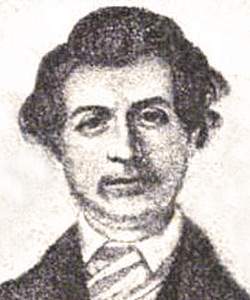Charles T. Torrey (Bordewich, 2006)
Scholarship
For the first months of 1844, the Bryonic [Charles T.] Torrey worked alone, personally collecting fugitives from as far away as Winchester, in the Shenandoah Valley of Virginia, and making plans – grandiose ones in light of what happened – to mount rescue expeditions in distant North Carolina and Louisiana. There was a certain compulsive quality to his behavior, as if each success bred a need for another, still greater risk. Not alone among evangelical abolitionists, he was also hooked on the frisson of imagined crucifixion. “Did you ever hear of a Torrey that suffered martyrdom?” he once asked his father. “I hope among our good old Puritan ancestors there were some who had the martyr spirit.” That June, Torrey was identified by a Washington slave dealer, who named him as the man who had carried off slaves from Winchester. Once in custody, he was also convicted for enticing three other slaves away from a Baltimore tavern owner, and sentenced to six years’ hard labor. It was a death sentence. Torrey did not have the constitution of the hardy seaman Jonathan Walker, and prison proved an agony for him. He was racked by “bilious fever,” and his moods swung wildly between depression and Christian exaltation. Then the tuberculosis from which he had suffered early in life crept inexorably and fatally through his lungs. On the night of May 7 he suffered a severe hemorrhage, and on the eighth he died. With [Thomas] Smallwood, he had helped an estimated four hundred slaves to freedom.
Fergus M. Bordewich, Bound for Canaan: The Epic Story of the Underground Railroad, America's First Civil Rights Movement (New York: Amistad, 2006), 301.
Charles T. Torrey (American National Biography Online)
Scholarship
Beginning with his editorship of the Massachusetts Abolitionist in 1838-1839, one of Torrey's principal interests was reform journalism. He served as editor of the Free American of Boston in 1841 and the Tocsin of Liberty of Albany, New York, in 1842-1843. He also served as a freelance reporter for several northern papers in 1841-1842. In his capacity as a reporter, in January 1842 Torrey attended the Slaveholders' Convention in Annapolis, Maryland, where he was arrested for refusing to leave a closed session of the meeting. Torrey's imprisonment lasted only six days, as prominent reformers and the Massachusetts delegation in Congress worked for his release.
Torrey's brief experience in a slaveholding state convinced him of the necessity of confronting slavery on its own ground. Leaving his family, in 1843 Torrey moved alone to Maryland in an effort to organize a formal system to help slaves escape. He claimed to have helped four hundred slaves escape, though this figure seems exaggerated. His activities were discovered in June 1844, and he was arrested. Many abolitionists hoped to turn the imprisoned Torrey into a martyr for the cause of freedom. The antislavery press carried stories of Torrey's mistreatment in prison, and abolitionists arranged the publication of his book, Home: The Pilgrim's Faith Revived (1845), written while he was in prison.
Torrey's brief experience in a slaveholding state convinced him of the necessity of confronting slavery on its own ground. Leaving his family, in 1843 Torrey moved alone to Maryland in an effort to organize a formal system to help slaves escape. He claimed to have helped four hundred slaves escape, though this figure seems exaggerated. His activities were discovered in June 1844, and he was arrested. Many abolitionists hoped to turn the imprisoned Torrey into a martyr for the cause of freedom. The antislavery press carried stories of Torrey's mistreatment in prison, and abolitionists arranged the publication of his book, Home: The Pilgrim's Faith Revived (1845), written while he was in prison.
Harold D. Tallant. "Torrey, Charles Turner," American National Biography Online, February 2000, http://www.anb.org/articles/15/15-00697.html.



